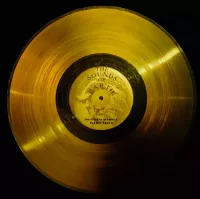Euphoria is an intense feeling of pleasure, excitement, well-being, and happiness. It can be triggered by natural rewards like exercise, laughter, music, and dancing, as well as social activities. In some instances, euphoria can be a symptom of neurological or neuropsychiatric disorders such as mania, or is linked to romantic love and human sexual response. Notably, certain addictive drugs can induce euphoria, which contributes to their recreational use and potential for abuse. It's a complex state linked to both positive and potentially harmful stimuli.
1903: Euphoria described as "pleasant excitement"
In 1903, euphoria was described in The Boston Daily Globe as "pleasant excitement" and "the sense of ease and well-being."
1920: Euphoria described as "feeling fit" in Popular Science magazine
In 1920, Popular Science magazine described euphoria as "a high sounding name" meaning "feeling fit", normally making life worth living, motivating drug use, and ill formed in certain mental illnesses.
1921: Euphoria described as an organic state opposite to fatigue
In 1921, Robert S. Woodworth's textbook Psychology: A study of mental life describes euphoria as an organic state which is the opposite of fatigue, and "means about the same as feeling good."
1940: Definition of Euphoria in The Journal of Psychology
In 1940, The Journal of Psychology defined euphoria as a "state of general well being ... and pleasantly toned feeling."
1957: British pharmacologist D.A. Cahal's view on opioid euphoria
In 1957, British pharmacologist D. A. Cahal did not regard opioid euphoria as medically undesirable but an effect which "enhance[s] the value of a major analgesic."
1977: Euphoria described as a mood of contentment
In 1977, the edition of A Concise Encyclopaedia of Psychiatry called euphoria "a mood of contentment and well-being," with pathologic associations when used in a psychiatric context.
January 2019: Clinical study on dopamine's effect on pleasure from music
In January 2019, a clinical study assessed the effect of a dopamine precursor (levodopa), dopamine antagonist (risperidone), and a placebo on reward responses to music, finding that dopamine neurotransmission bidirectionally regulates pleasure cognition in human subjects.
Trending

17 days ago Lamar Jackson's mother scolded him; Hamilton, Bateman to play against Bengals.

2 months ago Kyler Murray Exits Game Due to Foot Injury During Cardinals vs. Titans
2 months ago Jaguars entertain trade possibilities for WR Brian Thomas Jr. as Steelers seek receiver.

5 months ago Drake Maye and Wife Ann Michael Donate Wedding Gifts to Local Shelter

2 months ago Cowboys Rumored to Target Maxx Crosby in Potential Trade with Raiders.
Xavier Glenn Worthy is an American football wide receiver for the Kansas City Chiefs He played college football at the...
Popular

Candace Owens is an American conservative political commentator and author...

Ilhan Omar is an American politician currently serving as the...

XXXTentacion born Jahseh Dwayne Ricardo Onfroy was a controversial yet...

Tom Cotton is an American politician and Army veteran currently...

Kelsey Grammer is an accomplished American actor producer and singer...
The Kennedy Center Honors are annual awards recognizing individuals and...


